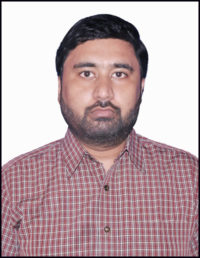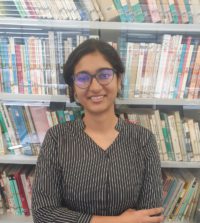events
Webinar
Workshop Series on Engaging with Big Data III: National Sample Survey (NSS)Online Workshop
Published on March 7, 2024
Details
May 27, 2024 6:00 pm (IST)
Online - Webinar
Course Description
In contemporary times, the significance of data-driven research has gained wide prominence in India. The large-scale datasets are essential in capturing the state of social and economic development in contemporary India. Large-scale datasets provide an enormous opportunity to undertake evidence-based research, validate theoretical frameworks and provide policy suggestions that are instrumental in public governance.
To aim of the workshop is to aid young researchers/scholars in handling large-scale survey data using STATA software. The main thrust of the workshop will be on providing hands-on training in using National Sample Survey Organisations (NSSO) Periodic Labour Force Surveys. Additionally, orientation will be provided regarding other NSSO surveys such as Survey Household Consumer Expenditure (2011-2012), Survey on Unincorporated Non-Agricultural Enterprises (2015-2016) and Survey on Debt and Investment (2019).
Given that NSSO surveys are at the household level, they provide essential information about the household’s well-being and functioning. While a macro-level analysis has its utility, a micro-level study using unit-level datasets provides us with a unique perspective on the economic development on the ground. In every economy, households and individuals at the ground level ought to remain the primary beneficiaries of economic development. Thus, for a social science researcher interested in Indian Social and Economic Issues, a study on the unit data datasets becomes inevitable for understanding the trends and patterns of contemporary development. NSSO provide an extremely rich repository of indicators on social and economic issues.
Expectations and Goals
Many a time for young researchers, it becomes a challenging affair to investigate large-scale datasets given the technicalities and complexities in the data handling techniques. Our workshop aims to ease these obstacles by providing a comprehensive understanding of using Large Scale NSSO Unit NSSO-level data.
The main objectives of the workshop are
- To provide a comprehensive overview of data processing
- Introduce fundamental concepts of statistical analysis, and
- Impart skills essential for using STATA in deriving and interpreting statistical results.
The workshop will start with developing familiarity with NSSO Reports, Questionnaires and Concepts related to NSSO surveys. Then will proceed with using the Datasets in STATA, Merging and Appending Data Blocks, Developing Summary Statistics and descriptive Statistics, Generating Analytical Tables, Exploring Results through Visual Tools, Scatter Plots, Box Plots, Correlation, Hypothesis Testing and Regression Analysis.
Prerequisites
Personal Computer (PC) with stable internet connection. The participants are expected to have Stata software installed on their PCs.
Class Days, Times, Location
Classes will be held online from 27 to 31 May 2024. Schedule 6 PM – 7:30 PM.
Day 1: Introduction to NSS
Day 2: Introduction to Stata using NSS data. Understanding the structure of data.
Day 3: Academic discussions of research ideas relevant to contemporary times.
Day 4: Assignment
Appropriate Use of Course Resources:
The workshop will be conducted through a combination of discussions and real-time hands-on exercises. Emphasis will be on enhancing understanding and skill in handling large-scale data. There would also be practical exercises that will facilitate researchers to apply the concepts in contemporary real-world scenarios.
Apart from providing various techniques of data processing and statistical analysis, the workshop will also strive to foster academic discussions of research ideas relevant to contemporary times. At the end of the workshop, researchers would have a good understanding of the NSSO Surveys. It would be our humble endeavour to ensure that scholars are able to handle large-scale data sets with ease and use it in developing analytically enriched research papers and advancing social science research.
Attendance/ Participation
Your attendance and active participation are an integral part of your learning experience in this course. Students are expected to attend class regularly. We will be taking attendance at each class. If students are not able to make it to class, please send an email to the course coordinator explaining your absence. It is expected that students will read all assigned readings prior to class. Students are encouraged to share their prior experiences with large-scale data, if any, during class. We have designed the class to include a combination of large group presentations/discussions, and small group discussions and breakout sessions. The slides for the class will be available in the classroom at the end of the lectures.
About Resource Persons
Dr. Rakesh Ranjan Kumar is a trained economist with a PhD in Development Studies & Labour Economics from Jawaharlal Nehru University, Delhi. His doctoral thesis focused on issues of youth employment, skill development and technology interface in India since 1991. His MPhil from Centre for Development Studies, Trivandrum, where he worked on studying the dynamics of economic mobility, migration and capability interface in Kerala. He has taught undergraduate courses at Delhi University, Bhagalpur University Bihar, BR Ambedkar University Delhi and JK Lakshmipat University Jaipur. He is currently engaged as a Senior Research Fellow at IIMAD and Consultant at the Climate Risk Horizons, Bengaluru.
Dr. Anjana Rajagopalan works as Manager- Climate Resilience Practice with WRI India and is affiliated as Senior Research Fellow with the International Institute of Migration and Development. After her Bachelor’s in Mathematics from Delhi University, Anjana did her Master’s in Economics (with a specialisation in Environmental and Resource Economics) from TERI SAS, New Delhi. Her MPhil was completed from the Centre for Development Studies, Trivandrum and centered around issues of Urbanisation post which she completed her Ph.D. in Labour and Development Economics from Jawaharlal Nehru University. Interested in multi-pronged approaches towards development, she has been engaging in multiple areas including Public Economics, Labour and Skill Development, Urbanisation and Migration, and Environment and Health Economics throughout her career. She has previously worked with the NITI Aayog, University of Cologne, Centre for Budget and Governance Accountability (CBGA), and Janaagraha Centre for Citizenship and Democracy in different capacities and projects.
Course Support
The International Institute of Migration and Development (IIMAD) will provide technical support for the course. If you need help with installation and access to course materials, please contact the IIMAD Help Desk by email at info@iimad.org. *Discounted fees will be available for deserving candidates.
Register Here: https://docs.google.com/forms/d/e/1FAIpQLScaDazE1a3XnetYnJTIoCr3PLShIJ7oSyk-tTnycFMk9R4aEQ/viewform

Chairperson

S Irudaya Rajan
Chair IIMAD

Rakesh Ranjan Kumar
Resource Person

Anjana Rajagopalan
Resource Person


